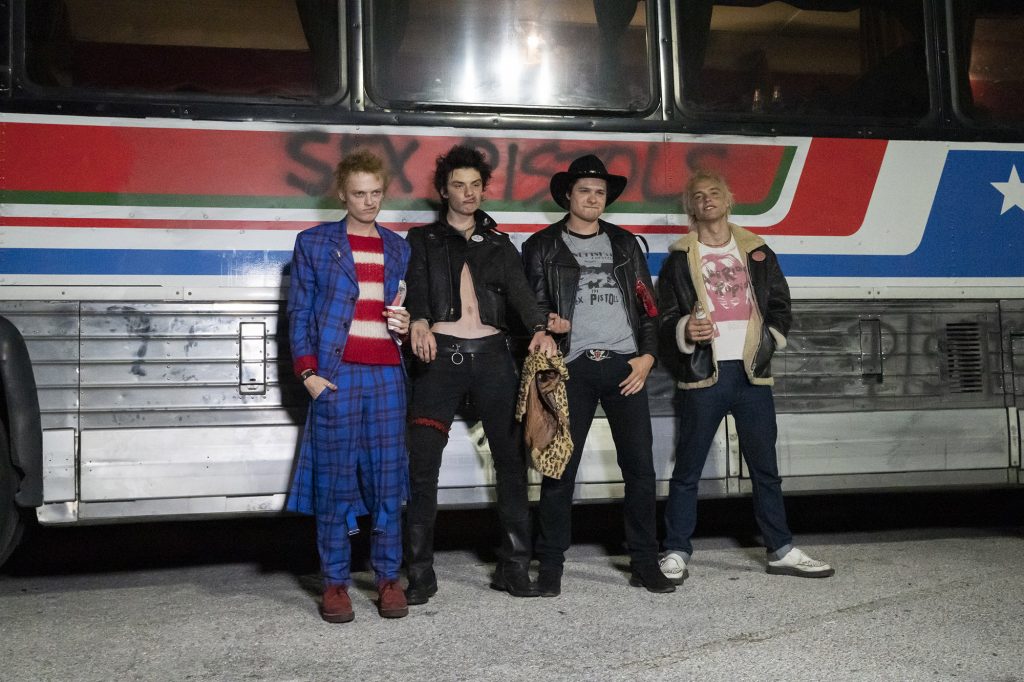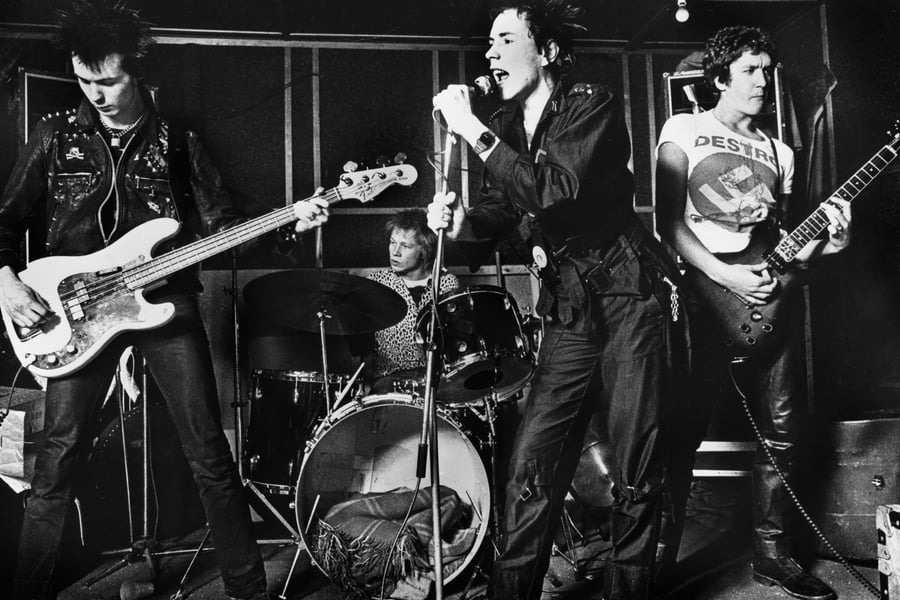Steve Jones published his memoir, Lonely Boy: Tales From a Sex Pistol, in 2016. The Sex Pistols guitarist wrote the book with author Ben Thompson; the Pretenders’ Chrissie Hynde contributed the foreword.
Once Lonely Boy was on shelves, Jones recognised an opportunity to adapt the book into a definitive cinematic retelling of the Sex Pistols story. Flash forward to 2022 and Lonely Boy has become Pistol, a six-part limited series directed by British filmmaker Danny Boyle (Trainspotting, Steve Jobs).
“I was totally shocked that Danny Boyle was on board, but I’ve read an interview recently where he said he was more thrilled about doing it than I was,” says Jones, who’s speaking to Rolling Stone Australia ahead of Pistol’s London premiere.
“Punk changed [Boyle’s] life, and so it’s passionate,” says Jones. “He absolutely loves it and I think he’s done a great job.”
Pistol offers an inside look at the Sex Pistols’ short-lived but monumental existence. Jones co-founded the band in mid-1970s London with his high school buddy, drummer Paul Cook. After recruiting singer Johnny Rotten, bass player Glen Matlock, and manager Malcolm McLaren, Jones played a central role in amplifying the anti-establishment ethos of the punk rock movement.

“PISTOL” — Pictured (L-R): Anson Boon as John Lyndon, Louis Partridge as Sid Vicious, Toby Wallace as Steve Jones, Jacob Slater as Paul Cook. CR: Rebecca Brenneman/FX
The 65-year-old Boyle regards the punk movement as a cultural tipping point. In a statement, Boyle described the events shown in Pistol as “the moment that British society and culture changed forever.”
“Punk did open up people’s eyes. Prior to that you just went along with whatever you was fed,” says Jones. “It just gave a generation a say in things, an outlet. Punk was a big deal.”
Love Music?
Get your daily dose of everything happening in Australian/New Zealand music and globally.
Jones is portrayed in Pistol by Australian actor Toby Wallace (Neighbours, Babyteeth). The 20-something Jones, described by Boyle as “a young, charming, illiterate kleptomaniac” and “a hero for the times,” is central to the narrative progression of Pistol. Wallace spent time with Jones to prepare for the role.
“We hung out in Los Angeles for a couple of weeks,” Jones says. “He was just hanging out, staring at me, looking at my mannerisms and all the rest of it. I gave him a few guitar lessons.”
Jones, an autodidact, had only been playing guitar for a year when the Sex Pistols recorded their one and only album, Never Mind the Bollocks, Here’s the Sex Pistols. He still managed to co-write half of the tracks on the album, which Rolling Stone regards as the 80th greatest album of all time.
But Pistol isn’t an uncritical glorification of punk rock’s poster boys. As Wallace says (in the role of Jones), “We’re not into music, we’re into chaos.” By January 1978, Sex Pistols had all but self-destructed—Matlock was sent packing and his replacement, Sid Vicious, succumbed to heroin addiction; Rotten had grown cynical of punk rock roleplay; and Jones had his fair share of off-stage vices.
https://www.youtube.com/watch?v=9KhxwG0eCiE&ab_channel=FXNetworks
“When I was young, anything went,” Jones says. “I was just looking for excitement, whether that was in sex or stealing or any kind of a buzz. Looking back on it, I think it was just an escape from my childhood, even though it was a lot of fun and exciting at the time.”
How does Jones feel about having the actions of his wayward younger self recorded for posterity by a director of Boyle’s stature? “I don’t look at it like it’s me,” he says. “I almost disengage from it. It’s almost like I’m watching some movie about a band. It’s bizarre really.”
Does he approve of Wallace’s interpretation of his overall demeanour? “He captures my vibe; a bit vulnerable, a bit thick,” he says. “He did a great job. I hope this doesn’t ruin his career.”



































